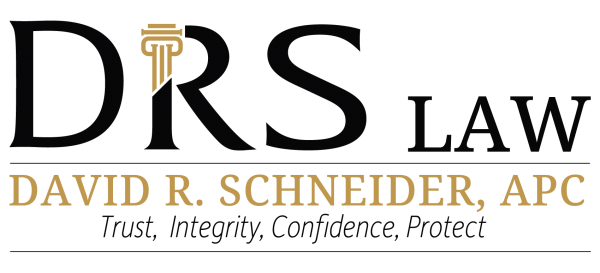One of the questions that comes to me most often is “Who to choose as my Successor Trustee?” followed by “Should I choose Co-Trustees?” These, of course, are very important decisions. However, it is important to remember that revocable trust decisions made today may be changed in the future. The decisions you make now, which should be the best decision for the given set of facts and circumstances, may not be the best decision in 5 years or 10 years from now – you can make a change.
Most commonly, clients tend to choose one of their adult children, as they feel this is the right thing to do. Often this is the best choice. However, this is not an obligation. When I work with clients, I stress to them not just the loyalty of family, which is a different subject addressed below, but responsibility and trust in the individual. With the majority of the families I work with, the adult children are fine and will typically be the best choices. However, every week I receive a couple of calls/emails asking my advice for dealing with a trustee, usually a brother or sister, who is not doing something right, is sitting on their hands, is taking the assets, living in the home for free, charging fees, the list goes on.
How Do I Choose the Right Successor Trustee?
The choice of who will be your successor trustee requires nothing less than real honesty in your decision-making. No one likes to tell someone else, especially a stranger or their new lawyer, that they do not believe their son will be ethical or treat his sister fairly. But the choice to go back to that same child in “order to keep the peace in the family today” is nothing more than taking the easy road when it comes to a more difficult decision-making time. As I set out this blog, I am presently working with a family where the parents chose to use one child as the 1st Successor Trustee, a few days later, after the older child complained, called to change their decision to use a Co-Trustee situation with both of the kids, to call again a few days later to state they were not moving forward as they could not make a decision which would make the children happy. Their failure to have an honest discussion lead to an inability to move forward, with no plan in place not just for their passing, but also for any potential incapacity problems.
When this client contacted me to let me know they were unable to move forward, I could hear the pain in their voice; the plan they wanted to create, which included adding in trusts to avoid probate, was not just about saving their family the time and trouble of a probate proceeding. It was also about providing the peace of mind knowing that they had put people they could trust into position to help them. Unfortunately, this plan was thwarted by their inability to address their situation honestly.
I advise clients they should be looking for those persons who they know to “have their back” those persons, whether blood-related or not, who they know in their heart of hearts they can count on to always be there. This might be a family member, perhaps not in the 1st generation of relation, could be a friend, could be a professional. The choice is and should be placed on the person you can trust.
Naming the oldest child, because they are the oldest child, is not reason enough.
Solving the problem by the choice of Co-Trustees is not typically the right answer. When the kids do not get along during life, where one might have a more aggressive personality, this is not going to soften after the parents are gone. In fact, this personality trait will become stronger and try to dominate more.
One of the most common problems in the probate court for families of decedents with trusts is the problem of Co-Trustees who cannot get along. If one child during life has typically shown a lackadaisical attitude towards responsibility decisions, the parents passing or capacity issues do nothing to improve this situation. The blind thinking that the one child will be able to bring the other along, or that this dual responsibility will somehow bring the siblings closer typically provides far more ills than it cures.
“Well, we did not want to hurt the other one’s feelings” is another statement often expressed, as though this was a giving out of presents rather than discussing responsibility for managing assets. There can be difficult choices when determining whether to move mom/dad into assisted living, selling the family home, and other hard decisions that might need to be made. While many of the decisions will be laid out before the Trustee by the facts presented, it is still work – I have not yet met the child of the family who felt threatened or jealous that they did not get more work to do.
Trust in what you know. These are people you have known for decades, likely their entire life. If you have a tingle in your gut that the decision you are about to make is not the right one, guess what? It isn’t! Usually your first instinct is going to be the correct one.
Choosing a Successor Trustee is Different Than Choosing a Healthcare Agent
Your choice of Successor Trustee does not have to be the same choice for your healthcare agent – that person who will be making healthcare decisions for you, when you are alive, but have become incapacitated. While relying on someone you can trust to advocate on your behalf when you can no longer do this is very important, it is just as important to recognize these types of decisions are going to be emotional – much more emotional than the financial decisions that will have to be made by the Successor/Trustee of the trust. So there are different considerations. One of those is geography. This is a ‘boots on the ground’ kind of task and we want our advocates to be able to see our situation and be able to read the expressions on our faces.
This could very well be a situation where one kid has moved away and the other remained behind, or using a surrogate in a cousin, niece, nephew, or again a friend.
Also, as we have seen above with money and property situations, the use of Coagents for healthcare advocacy is even more challenging when the decisions can be emotional. Most families consist of multiple children with different thresholds when it comes to emotional decisions, thus to designate an agent simply based on age seniority or to use Co-Agents to save yourself from dealing with the process of making a decision today, will cause the same amount of grief in the future.
Trust in your own true feelings and when you need help in decision-making, lay out the facts for your professional and let them help by providing some parameters to your selection process to allow you to help yourself.
We’re Here to Help – An Experienced Trust Attorney is Just a Call Away
Estate planning consultations are available virtually and in the office, and David is happy to help clients throughout California. He has helped thousands of families set and achieve their estate planning goals. David sees clients by appointment only to ensure that each has his undivided attention. Contact us to schedule a free consultation today at 805-374-8777 or dschneider@drs-law.com. We look forward to hearing from you and helping you set up your comprehensive estate plan, including a trust, a pour-over will, durable power of attorney, advanced healthcare directive, and nomination of a guardian and special needs trust, where needed.

